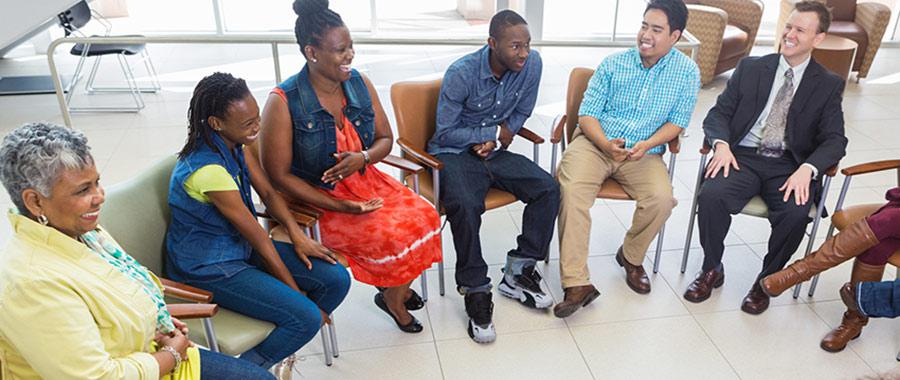In the realm of religious governance, Bahá’í elections stand as a paradigm of humility and service, embodying the principles that govern the Bahá’í Faith. Unlike conventional political systems that often succumb to individual ambition and partisanship, Bahá’í elections emphasize collective decision-making, transparency, and spiritual principles. This article explores the distinctive features and underlying philosophies of Bahá’í elections, elucidating how they serve as a model for societies aspiring to foster humility and service among their leadership.
At the core of Bahá’í electoral processes is the fundamental tenet of universal participation. Every eligible Bahá’í is encouraged to partake in the electoral mechanisms without the interference of political campaigning or rivalry. This absence of competition cultivates an environment where the focus remains on collective well-being rather than individual gain. The process initiates with a period of consultation, wherein community members engage in dialogue about the qualities and skills that are imperative for effective leadership. Such consultations engender a spirit of unity and camaraderie, allowing individuals to converge upon shared objectives.
Another defining element of Bahá’í elections is the emphasis on servitude over dominance. In this context, leaders are not viewed as authoritarian figures; rather, they are seen as facilitators, entrusted with the responsibility of serving the community’s needs. This perspective is rooted in the belief that true leadership is synonymous with selflessness and compassion. Candidates are selected based solely on their capacity to render service, demonstrating the Bahá’í principle that the greatest amongst people is the one who serves others most effectively. This ideological framework disincentivizes the pursuit of power for power’s sake and promotes the values of altruism and community service.
The mechanism for electing local and national Bahá’í assemblies exemplifies this elevation of service over personal ambition. During local elections, the community gathers to choose members who will represent their interests. Importantly, these assemblies do not adhere to conventional party politics; therefore, members do not campaign for votes or engage in traditional electioneering practices. Instead, individuals are elected based on their qualifications and the esteem in which they are held by the community. This approach mitigates the influence of self-promotion, allowing the electorate to focus on the inherent merit and capability of the candidates.
Moreover, Bahá’í elections underscore the sacred obligation of confidentiality. Voters engage in the electoral process free from external pressures and the scrutiny of their choices. This confidentiality fosters an environment of trust and integrity, enabling individuals to express their preferences authentically. It further encourages the electorate to evaluate candidates based on their alignment with Bahá’í principles and their commitment to serve, rather than their popularity or social standing. This practice exemplifies the commitment to humility, ensuring that the electoral process remains focused on spiritual and communal goals.
The role of prayer and reflection in Bahá’í elections cannot be overlooked. Candidates and voters alike are urged to engage in prayers and meditative practices to seek divine guidance during the electoral process. This spiritual dimension elevates the act of voting into an exercise of reflective decision-making, reinforcing the notion that leadership stems from a founding connection to a higher calling. The belief in divine assistance further cements the concept that the outcomes of these elections are part of a greater plan, infused with a purpose that transcends mere administrative function.
One of the remarkable aspects of Bahá’í elections is the comprehensive approach towards diversity and inclusion. The electorate includes men and women, diverse ethnic and cultural backgrounds, and individuals from various social strata. Each voice is deemed valuable, harmonizing with the Bahá’í principles of equality and justice. By striving for inclusivity, Bahá’í elections serve as a model for other governance structures seeking to embrace diverse perspectives, fostering a more equitable and harmonious society. This inclusivity is not simply a theoretical ideal; it manifests in practical efforts to ensure that every community member has a seat at the table, reinforcing the structural integrity of the electoral process.
Moreover, the systemic approach to education underscores the evolutionary aspect of Bahá’í governance. Bahá’í institutions focus on the ongoing development of all members, equipping them with the skills necessary to participate meaningfully in leadership roles. Through educational initiatives, individuals are trained to embody the principles of service, fostering a culture of humility that is essential for responsible governance. This foundation of education not only prepares individuals for leadership positions, but it cultivates a community ethos characterized by mutual respect and dedication to service.
As we reflect on the Bahá’í electoral model, it becomes clear that it is a finely interwoven tapestry comprising trust, humility, and genuine service. Emerging from a rich philosophical tradition, Bahá’í elections illustrate the power of collective responsibility and the profound impact of nurturing inclusive, empathetic communities. For contemporary societies grappling with the challenges of polarization and discord, the Bahá’í approach to elections offers valuable insights that could lead to more harmonious governance. The lessons gleaned from this unique electoral system not only enrich the Bahá’í community but also resonate universally across diverse societal landscapes, advocating for a future where service is paramount, and humility guides leadership practices.
